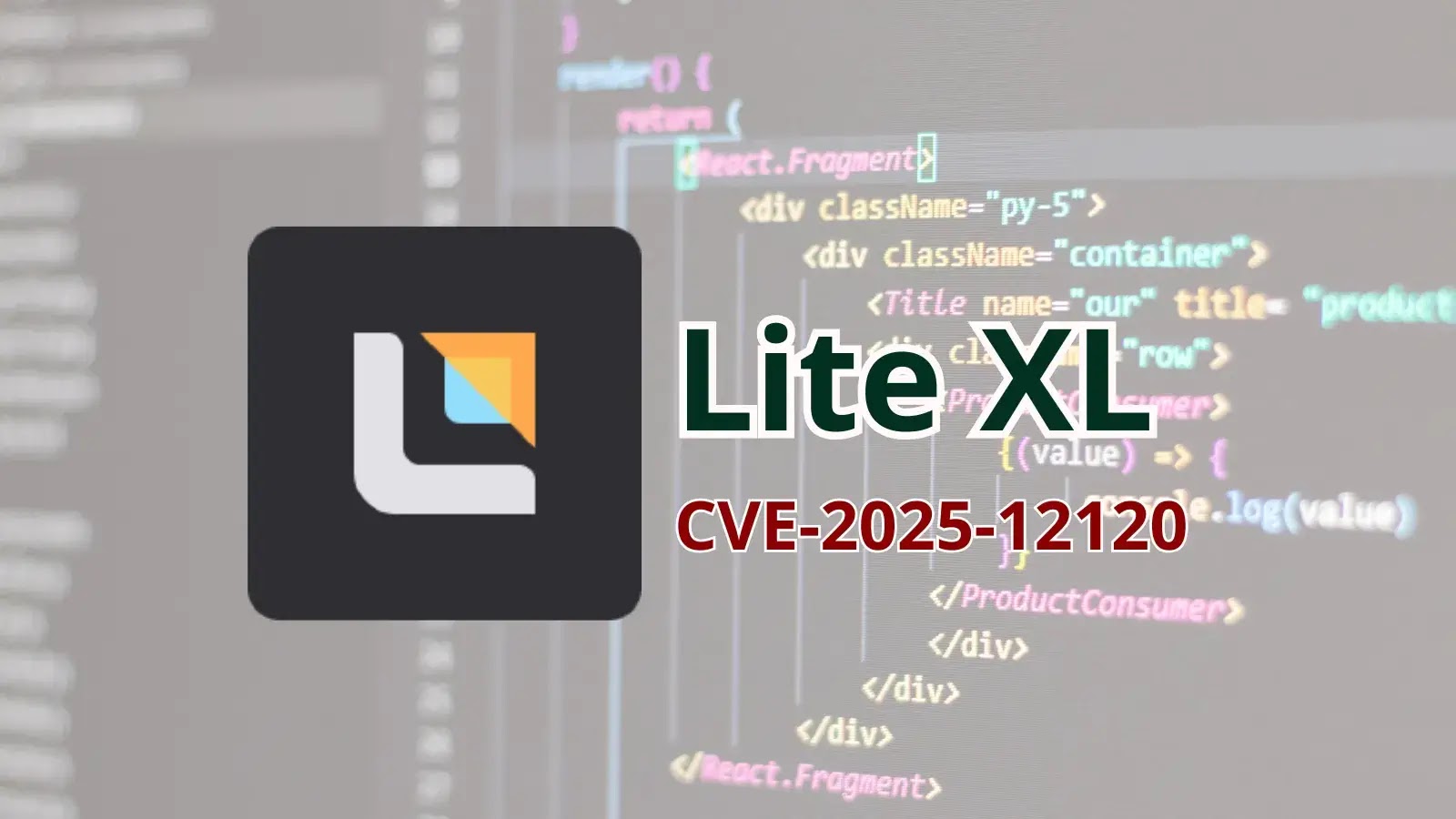Critical Vulnerability in Lite XL Text Editor Allows Arbitrary Code Execution
A significant security flaw has been identified in Lite XL, a lightweight text editor favored by developers for its simplicity and efficiency. This vulnerability, designated as CVE-2025-12120, affects versions 2.1.8 and earlier, potentially enabling attackers to execute arbitrary code on users’ systems.
Understanding the Vulnerability
The core of this issue lies in Lite XL’s handling of project configuration files, specifically the `.lite_project.lua` file. When a user opens a project directory, Lite XL automatically executes this file without prompting for user confirmation. While intended for legitimate project-specific settings, this file can contain executable Lua code. The absence of a verification step before execution means that if an attacker embeds malicious code within this file, it will run immediately upon the project’s opening, inheriting the same privileges as the Lite XL application.
Potential Attack Scenarios
An attacker could distribute a seemingly benign project folder through platforms like GitHub or file-sharing services. Upon opening this project in Lite XL, the embedded malicious `.lite_project.lua` file would execute silently. This could lead to unauthorized access to sensitive data, file modifications, malware installation, or further system compromise. The risk is heightened by the trust users often place in projects from known sources, potentially leading them to overlook the contents of configuration files.
Impacted Users
Users operating Lite XL version 2.1.8 or earlier are vulnerable to this exploit. The severity of the impact depends on the user’s system permissions; in most cases, the attacker would gain the same privileges as the Lite XL process, which could be substantial if the application runs with elevated permissions.
Recommended Actions
To mitigate this vulnerability, users should:
– Update Lite XL: Upgrade to a patched version as soon as it becomes available.
– Exercise Caution: Avoid opening untrusted project directories in Lite XL.
– Inspect Configuration Files: Review the contents of any `.lite_project.lua` file before opening projects from unknown sources.
This vulnerability underscores the importance of understanding how applications handle configuration files, especially those containing executable code. It also highlights the need for developers to implement confirmation prompts before executing such files or to disable automatic execution entirely.



